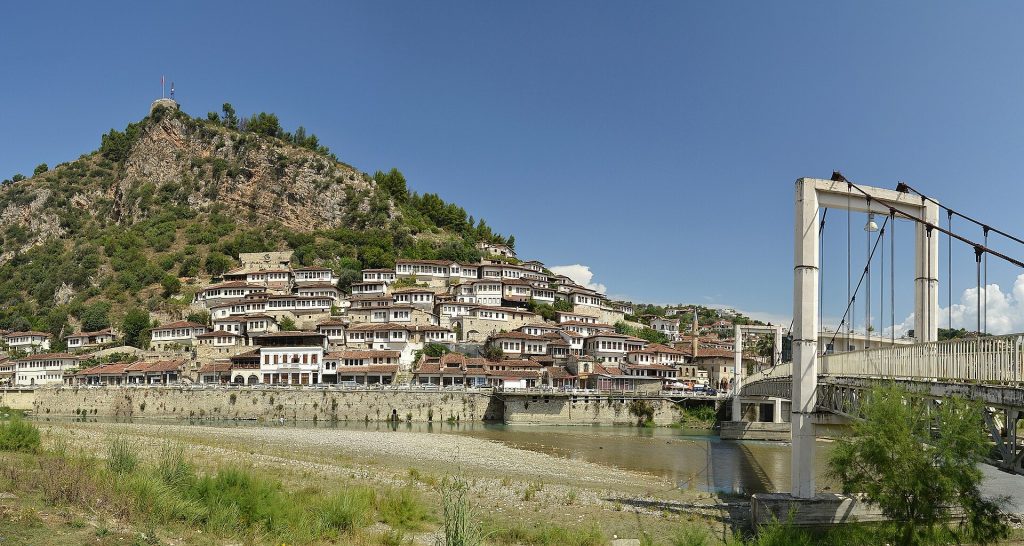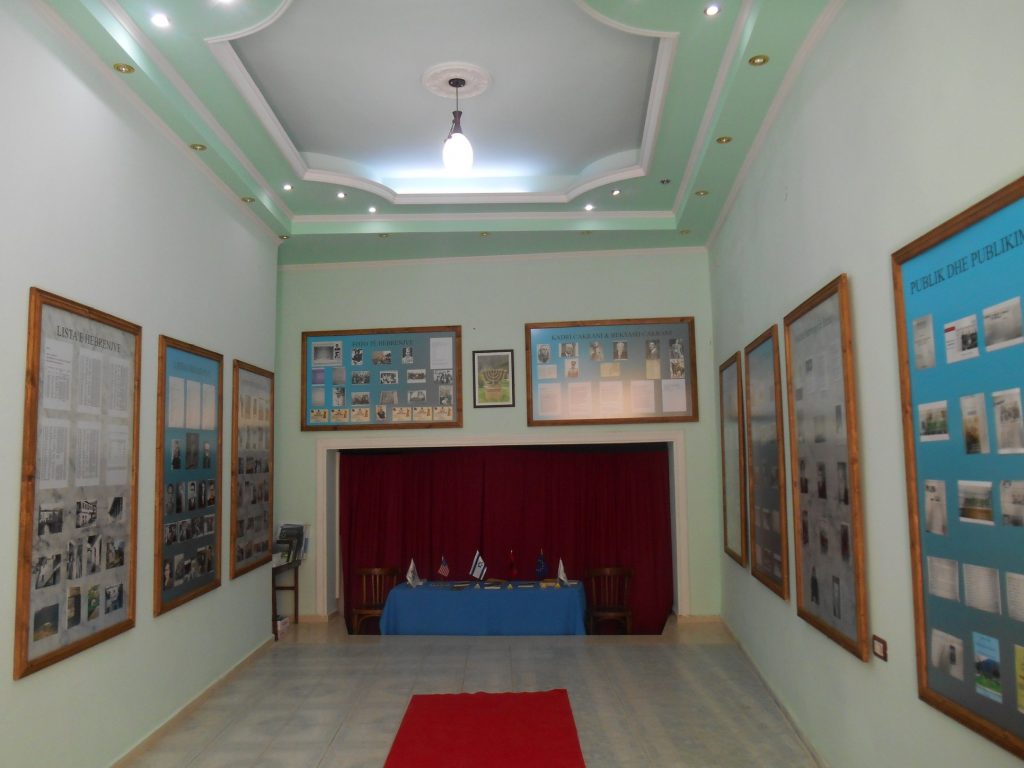
The old town of Berat is a World Heritage Site, known as the “City of a Thousand Windows”. Indeed, the white houses of the city and their windows framed in dark wood seem to be superimposed on each other.
Perpendicular to Antipatrea Street , you will find the Jewish Street.
Jewish museum
But above all, you will find in Berat the only Jewish Museum in Albania. The Solomon Museum was created in 2018 by Simon Vrusho. This enthusiast collects and exhibits hundreds of documents, photographs and artefacts retracing 2,000 years of Jewish history in Albania.

The Solomon Museum, also tells the story of how Albanians of Muslim and Christian faiths saved Jews during the Holocaust. After Vrusho’s death, the French-Albanian businessman Gozmend Toska financed its reopening and expansion to another part of the city.
Sabbatai Zevi’s burial place?
It should also be noted that some sources claim that the false messiah Sabbatai Zevi would be buried in Berat. this explains the establishment of a Deunmé community in Berat in the 17th century.
The city remained a place of pilgrimage for Zevi devotees until the 20th century. You can visit the supposed tomb of the mystic in the Sultan Mosque , you will recognize it by its Turkish calligraphy.
On the other side of the courtyard is a smaller mosque. Above the front door you will notice floral designs that resemble stars of David – perhaps indicating that this building was once a deunme place of worship.
Born in Smyrna (now Izmir) in 1626, into a family of clothiers from the Peloponnese, an enthusiastic Kabbalist, Sabbataï Zevi, convinced of being the Messiah, led the Jewish communities of the Ottoman Empire into turmoil. For its most penetrating modern exegete, Gershom Scholem, this religious and insurrectionary movement developed against a background of cabalistic mysticism, the dominant form of Jewish piety of the time.
From the expulsion from Spain, Jewish thinkers wondered about the significance of such a catastrophe, relating it to the destruction of the Temple in Jerusalem. “I think that these trials,” said a rabbi in Rhodes in 1495, “are the birth pangs of the Messiah. So one can understand the enthusiasm and the hopes which sparked the dazzling Messianic movement of the Smyrniot, despite his excommunication by the rabbis of Jerusalem. In 1665, Sabbataï Zevi decided to go to Istanbul. Arrested by the Ottoman authorities, forced to choose between martyrdom and conversion to Islam, the so-called Messiah chooses to bow.
Some of his supporters see this apostasy as an essential step in the achievement of his mission and also convert to Islam, while maintaining their Jewish faith and practicing the rites in secret. This community of deunmés (“those who turned”) retreated to Turkey at the end of the Empire. Some large military families still play an important role in publishing or industry today. Hidden for a long time, remained discreet during the first seventy years of the secular Republic founded by Mustapha Kemal, the Turkish deunmés began to openly claim their identity and their history.